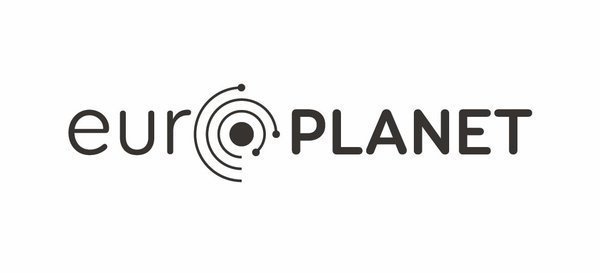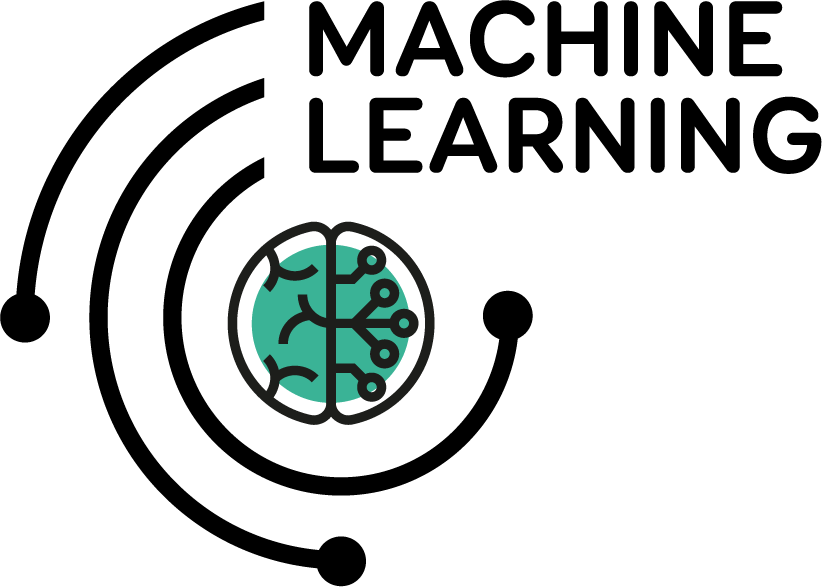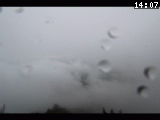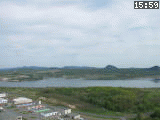
Small cumulus humilis clouds that can have noticeable vertical development and clearly defined edges.
The presentation generalizes findings from recent studies, focusing on the connection between Cu dynamic properties, such as velocity field, entrainment/detrainment, and cloud microphysical properties, such as cloud dilution rate and droplet size distribution parameters. Special attention is paid to the mechanisms of cloud-surrounding interactions. In particular, we focus on numerical and analytical derivations from the results of 10-m-resolution Large Eddy Simulations with spectral bin microphysics and statistical analysis of the motion of passive tracers. We used wavelet filtration to separate the cloud's dynamic and microphysical fields into turbulent and convective ones. The main parameters of cloud turbulence and convective motions were evaluated. Turbulence was shown to form an interface zone of a few tens of meters between the cloud and the surrounding air. Convection-scale motions are responsible for dynamic and microphysical properties' formation in the cloud interior. The special role of the vortex ring (toroidal vortex, TV) arising in the upper part of developing clouds is stressed. This TV is responsible for dynamic and microphysical cloud structure formation. It determines the cloud's size, internal dynamics, and ascent velocity of the cloud top. It is demonstrated numerically and analytically that the TV-related cloud circulation leads to a mean adiabatic fraction of 0.4-0.5. The close relationship between this value and the shapes of the size distribution functions is demonstrated. Knowledge of the effects TV has on cloud microphysics and dynamics allows us to propose parameterization of the main dynamic and microphysical properties of small Cu using sounding data and aerosol concentrations.
Assimilation of Doppler from space in WRF model: application to WIVERN radar for the Medicane Ianos case study
| Speaker: Stefano Federico | 19 Sep 2024 in the large meeting room |

Ianos at its record peak intensity, nearing landfall in Greece on 17 September.
- Battaglia, A., et al., 2022, https://doi.org/10.5194/amt-15-3011-2022.
- Federico, S., 2013, https://doi.org/10.5194/amt-6-3563-2013.
- Illingworth, A. J., et al., 2018, DOI: 10.1175/BAMS-D-16-0047.1, 1669-1687.
- Flaounas, E., et al., 2023, https://doi.org/10.5194/wcd-4-639-2023
- Climate variability and climate changes
- Extreme weather events and their simulation in climate models
- Atmospheric circulation and links to surface climate
- Weather-related impacts on human health
- Motivation letter, indicating the selected research topic
- CV with the list of publications and other relevant research outputs
- Copy of PhD diploma (or another proof of a PhD degree)
- Names and email addresses of two persons who can provide recommendation

 On September 2, 2021 the Institute of Atmospheric Physics of the Czech Academy of Sciences received the prestigious HR Excellence in Research Award. We have thus joined more than 600 European scientific institutions that already have this European award in human resources area. However, by granting this certification, our work does not end. We will continue to work on further improvements of working environment for our employees (not only scientists, but also administrative ones). We expect that obtaining this award will increase the prestige of our workplace in the eyes of the professional public, its attractiveness in terms of addressing new employees, including those from abroad, and strengthen our position to obtain funding from Czech and foreign grant programs as well. More about the whole process at the following link: HRS4R | EURAXESS (europa.eu).
On September 2, 2021 the Institute of Atmospheric Physics of the Czech Academy of Sciences received the prestigious HR Excellence in Research Award. We have thus joined more than 600 European scientific institutions that already have this European award in human resources area. However, by granting this certification, our work does not end. We will continue to work on further improvements of working environment for our employees (not only scientists, but also administrative ones). We expect that obtaining this award will increase the prestige of our workplace in the eyes of the professional public, its attractiveness in terms of addressing new employees, including those from abroad, and strengthen our position to obtain funding from Czech and foreign grant programs as well. More about the whole process at the following link: HRS4R | EURAXESS (europa.eu).
EUROPLANET 2024 RI, “Europlanet 2024 Research Infrastructure“, Project ID: 871149
EPN-2024-RI represents a step-change in ambition for planetary science worldwide. Innovations include the establishment of a ground-based observation network to support space-based missions, the launch of an interactive mapping service to provide a virtual exploration of planetary surfaces, and the development of machine learning tools for data mining to fully exploit and analyse planetary data sets.
The team from the Department of Space Physics of IAP contributes datasets and expertise for machine learning-based identification of magnetospheric phenomena.
This project has received funding from the European Union's Horizon 2020 research and innovation programme under grant agreement No 871149.



The Institute of Atmospheric Physics participates in the following projects of the EU Horizon 2020 Framework Programme:
- EUROPLANET 2024 RI, "Europlanet 2024 Research Infrastructure", Project ID: 871149 - PAGER, "Prediction of Adverse effects of Geomagnetic storms and Energetic Radiation", Grant Agreement No. 870452 - SafeSpace, "Radiation Belt Environmental Indicators for the Safety of Space Assets", Project number: 870437
Internal seminars - invitation
for the autumn cycle of internal seminars of the IAP CAS which always take place on Thursday from 2 pm in the IAP meeting room (2nd floor, door no. 201), Boční II 1401, Prague 4 - Spořilov
30. 10. U. Taubenschuss: A new electron density model for Saturn's magnetosphere
13. 11. R. Beranová: Changes in characteristics of convective precipitation
27. 11. K. Aksonova: Comparative Study of Large Scale Traveling Ionospheric Disturbances During October Geomagnetic Storms Driven by CIR/HSS and ICME Events
4. 12. M. Müller: Weather extremes in 250 years in Prague Klementinum and 120 years on the Milešovka Mt.
The Czech Meteorological Society (ČMeS) has published a fundamentally innovated on-line version of the explanatory and terminological dictionary.
You will find an explanation of almost 4,500 technical terms from meteorology, climatology and related fields. Foreign language registers make it easy to search for Czech equivalents of terms in English, Slovak, German, French and Russian. The dictionary also includes a list of more than 300 professional abbreviations. Interactive links to related keywords and full-text searches in terms and in their explications facilitate work with the dictionary. The continuously updated Electronic meteorological explanatory and terminological dictionary is available at http://slovnik.cmes.cz/.

 |
 |

The centers, which have been introducing children and adults to science and technology in an entertaining way for over six years, were until recently almost self-sufficient and were able to attract over 1.7 million visitors per year. However, three-month break due to coronavirus crisis, termination of school expeditions and slow return toward the previous state sent the attractive organizations to the brink of collapse. However, they do not wait, they do not idle, but they fight. Some of them have already opened, others are opening in upcoming days, they are preparing a rich program and inviting visitors to come and support them with their visit. They also appeal to the government and ask for quick financial aid.
Leading Czech scientists and technicians have now started fighting to save the three most endangered science centers, filming a challenge asking public and private institutions and visitors not to let the attractive centers fall. They also remind that the state invested 2.5 billion crowns from public sources into their construction six years ago.
"To save them, an investment in order of several millions crowns or system support ensuring the attendance of school groups would now be enough. This goes hand in hand with a recommendation to schools by their founders and the Ministry of Education to visit these centers, as it is not just a regular school trip, but on the contrary an experiential form of education, "says Jiří Dušek, director of the Brno Observatory and Planetarium and Member of the Senate of the Parliament of the Czech Republic.

"Science centers are crucial to attract the next generation of skilled and enthusiastic people for science, research and innovations, and thus for the advanced economy. Such thing takes a long time to build, costs a lot of money and includes highly qualified workers. But it can be destroyed in a moment, "recalls Eva Zažímalová, President of the Czech Academy of Sciences.
Science will find a solution to the current and future human problems, do something about it - take your children and grandchildren and visit your science center, "appeals the most cited living Czech scientist Pavel Hobza from the Institute of Organic Chemistry and Biochemistry of the Czech Academy of Science.
"It is absolutely necessary that the centers survive, because people who work there are experts. If we lose them, the centers will have no influence on the further development of education, "warns Czech astronomer Jiří Grygar.What is the situation in the individual centers?
 iQlandia in Liberec
Public benefit organization, which was one of the 10 most visited tourist destinations in the Czech Republic. Annual revenues and costs CZK 50 million, self-sufficiency 99%, loss of sales for April and May CZK 10 million, they laid off 30% of employees in April, without support they have to go into insolvency in the autumn. Save iQlandia - subscribe to a ticket and become a patron of science.
The world of technology in Ostrava
It is part of the registered association Dolní oblast Vítkovice, annual revenues and costs CZK 40 million, loss for March and April CZK 5 million, currently released all employees on agreement and actively uses the Antivirus program.
iQlandia in Liberec
Public benefit organization, which was one of the 10 most visited tourist destinations in the Czech Republic. Annual revenues and costs CZK 50 million, self-sufficiency 99%, loss of sales for April and May CZK 10 million, they laid off 30% of employees in April, without support they have to go into insolvency in the autumn. Save iQlandia - subscribe to a ticket and become a patron of science.
The world of technology in Ostrava
It is part of the registered association Dolní oblast Vítkovice, annual revenues and costs CZK 40 million, loss for March and April CZK 5 million, currently released all employees on agreement and actively uses the Antivirus program.
 Techmania in Pilsen
Public benefit organization, annual revenues and costs CZK 50 million, self-sufficiency 66%, loss for March and April CZK 6 million, 65% of employees will probably be laid off in April, then it will be open only 4 days a week. Support the Techmania Science Center!
VIDA! science center Brno
The contributory organization of the South Moravian Region, annual revenues and costs approx. CZK 60 million, self-sufficiency 35%, loss for March and April CZK 2 million, now without savings, however least problematic, it is kept afloat by the founder and the city of Brno.
Media contact:
Jiří Dušek, director of the Brno Observatory and Planetarium, Member of the Czech Association of Science Centers
tel. 775 354 555, dusek@hvezdarna.cz
Video on youtube.
Techmania in Pilsen
Public benefit organization, annual revenues and costs CZK 50 million, self-sufficiency 66%, loss for March and April CZK 6 million, 65% of employees will probably be laid off in April, then it will be open only 4 days a week. Support the Techmania Science Center!
VIDA! science center Brno
The contributory organization of the South Moravian Region, annual revenues and costs approx. CZK 60 million, self-sufficiency 35%, loss for March and April CZK 2 million, now without savings, however least problematic, it is kept afloat by the founder and the city of Brno.
Media contact:
Jiří Dušek, director of the Brno Observatory and Planetarium, Member of the Czech Association of Science Centers
tel. 775 354 555, dusek@hvezdarna.cz
Video on youtube.1271
publications (since 2010)
197
projects (since 2010)
114
employees
60
years









